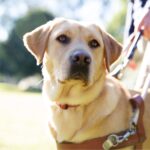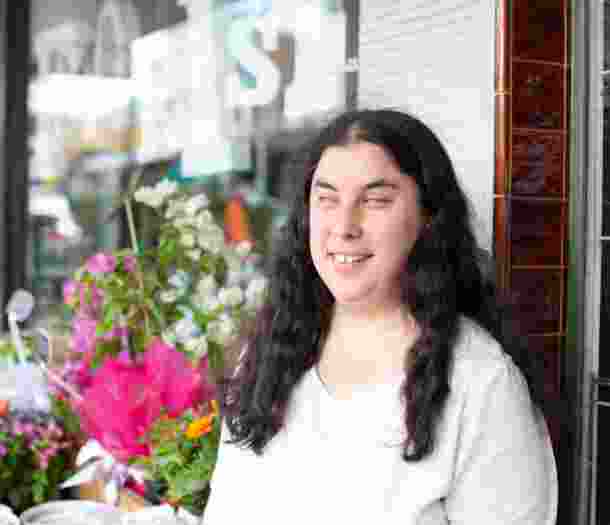What does advocacy involve?
Our advocacy helps to make certain people with low vision or blindness can experience the world with freedom and independence.
As one of Australia’s most trusted service providers for people with low vision or blindness, Guide Dogs is proud to use its prominent voice to advocate for equal access in the community.
Our advocacy efforts are designed to remove barriers for people with low vision or blindness. The goal is to ensure everyone can enjoy the same experience of using public transport, visiting public places and spaces, accessing health and education environments, enjoying meaningful employment, and more.
By partnering with different government departments, peak bodies, and even other service providers, we can identify issues, inform policies and legislation, and generally promote an inclusive culture. By inclusive, we mean a culture in which people are more aware and considerate of those in the community with low vision or blindness.
Advocacy is just one of the many ways we ensure people with low vision or blindness can experience the world with freedom and independence.
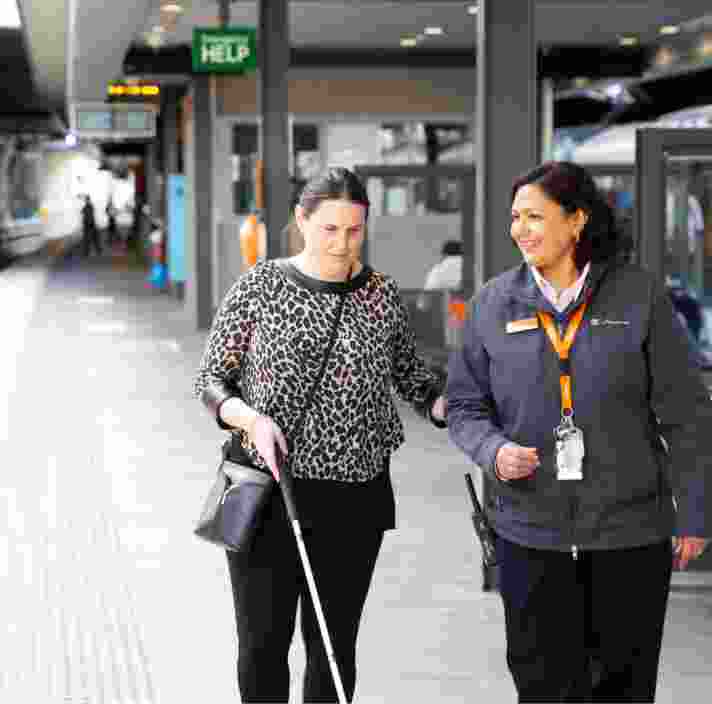
What are the different types of advocacy?
We're involved in both systemic- and individual-level advocacy.
In a general sense, systemic advocacy involves partnering with different organisations to ensure that services and systems (for example, the National Disability Insurance Scheme) and community infrastructure (for example, the design of public transport, city squares, streets, and roads) provide a safe and independent experience for people with low vision or blindness.
Individual advocacy occurs if you’re a person with low vision or blindness and you experience a specific incident of discrimination, misunderstanding, or a barrier to the use of a service or space. Examples include a restaurant stopping you from bringing your Guide Dog inside, or a taxi or ride-share vehicle refusing to carry you and your Guide Dog.
In these cases, we can connect you with advocacy organisations such as Blind Citizens Australia who have expertise in individual advocacy and can assist you to achieve a resolution.
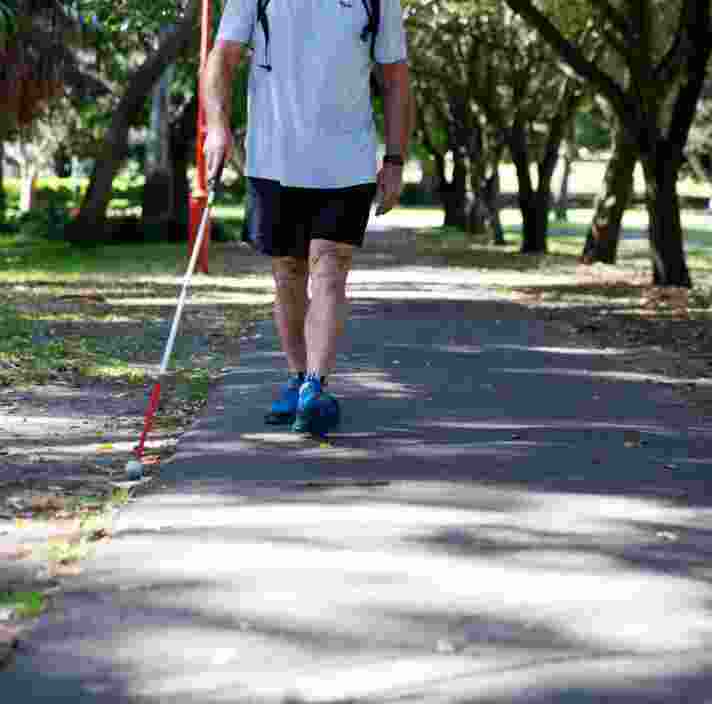
Our advocacy partners
An inclusive approach in the community through collaborative partnerships.
Systemic advocacy—and achieving systemic change throughout the community—takes a lot of collaboration and teamwork.
Guide Dogs is proud to work closely with a wide range of State and Federal Government departments while partnering with organisations including:
- Blind Citizens Australia (mentioned above)
- Vision 2020
- People With Disability Australia
- Local community organisations in different states around the country.
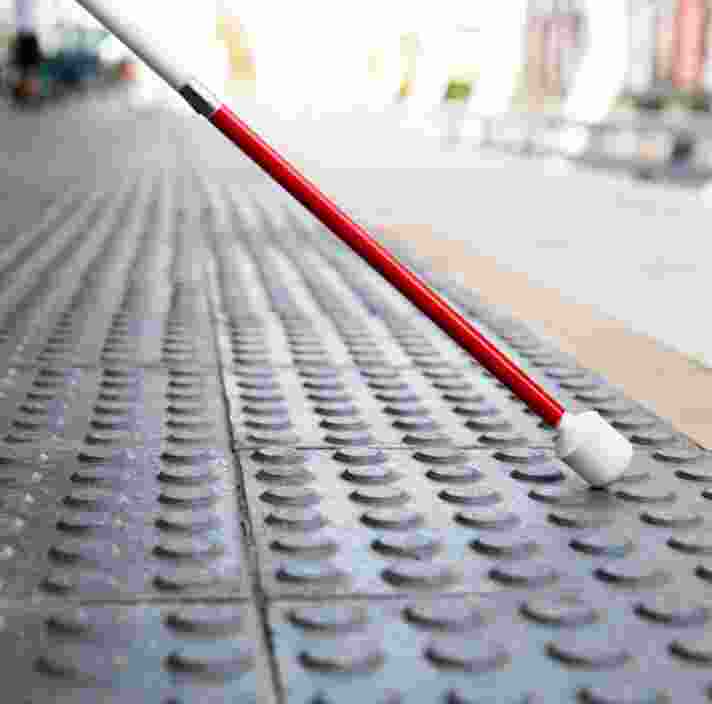
How can I access support for individual advocacy?
Connect with your local Guide Dogs for advice and guidance on your specific concern or experience.
While our main focus is systemic advocacy, we’re always here to provide assistance and support if you encounter a negative experience related to your low vision or blindness.
As we mentioned above, we can put you in contact with partners who specialise in advocating for individuals. We can also provide resources that will support you as you pursue a remedy to a situation caused by a lack of access.
For advice and guidance on your specific concern or experience, contact your local Guide Dogs organisation.
Access All Areas
Helping people with low vision and blindness to gain equal access.
People with low vision or blindness experience access challenges daily. This might include being illegally refused entry to a venue because they have a Guide Dog. Or it might be because physical barriers, signage, or a lack of information doesn’t allow for them to enter a place in an inclusive way.
It doesn’t have to be this way.
Our Access All Areas campaign aims to remove barriers for people with low vision or blindness, and to provoke change.
On this page you can hear from people with low vision or blindness about their own experiences with access challenges. If you’re a Guide Dogs Client you can find out more about your access rights and how you can self-advocate. If you’re a business owner you can download tools, tips, and other resources to help make your business more welcoming and inclusive.
Our Access All Areas page features:
- Research we’ve undertaken on access challenges for Guide Dog Handlers
- Personal stories from people with low vision or blindness, as well as Guide Dogs supporters
- A huge trove of resources for people interested in access, including business owners
- Resources for people seeking to advocate for themselves
- Much more
Ready to continue?
Seems like you have filled this form earlier. Let’s pick up where you left off.
